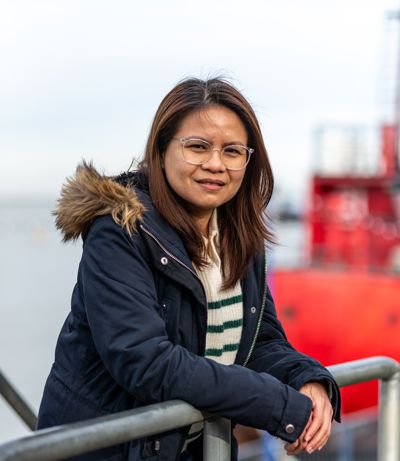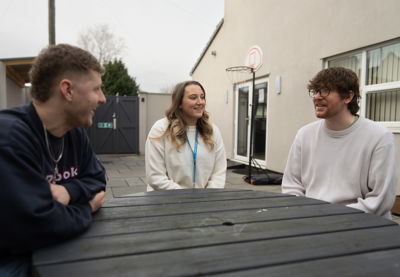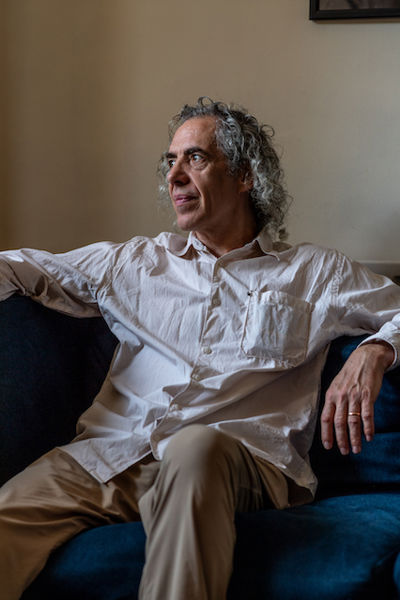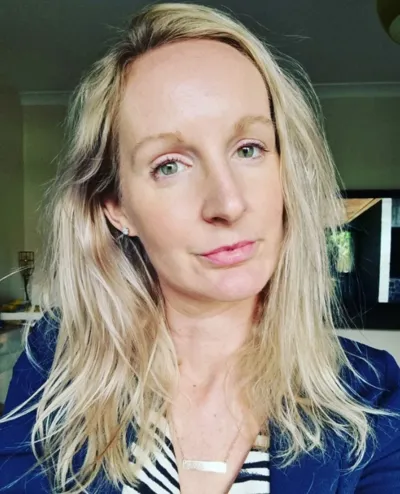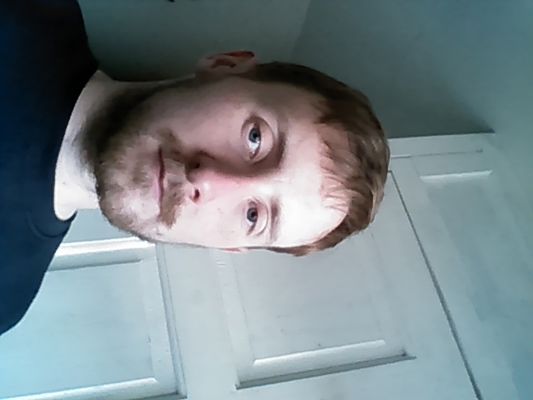“When we see the sun, there is always hope” – Hilary’s story
15/04/2025
A stock photo has been used on this blog at the request of the author.
After losing her brother to suicide, Hilary was struck with shock and unanswered questions. She reflects on the happy memories of her brother and the support she received from Rethink Mental Illness’ suicide bereavement service.
The main reaction to the news from my sister of my brother’s untimely death, by taking his own life, was first shock, but then numbness and gradually a mind fog. Everything else that day involved just going through the motions - feeding the cat, making a light meal, probably soup. Then came the raw emotion.
My need to share the news with my two daughters was urgent. I had to share this load which was weighing on my heart, even though it was early on a Thursday morning when they were both getting ready for work. It wasn’t just my own grief and my sister’s that I was dealing with, but conveying shocking news to them about their uncle, as well as listening to their reaction over the phone and not being able to prepare them for what I was about to say. I was, after all, still just beginning to process my own shock and grief.
On top of this, one of the saddest, most difficult things was that I had gone through, and still am processing, another bereavement only 3 months earlier. My husband of 36 years died after a short illness, albeit peacefully. So, I had no one at home to share my grief with on an hourly basis in those first few days.
-
The word ‘loss’ to describe the death of a loved one is inadequate and inaccurate
From the day the news of our brother’s death was shared, there were so many practical, cold, administrative matters my poor sister had to deal with as next of kin, like phoning people in authority, including the police, which put my brother’s untimely death into a different realm. Although I live 120 miles away from her, I could hold her in my heart and mind. I wanted to wrap my arms around her.
We had lost the siblings link of the three: the triangle of supportive siblings. My sister was closer to my brother than I was, but I still lost my only younger brother who I grew up with. We’d enjoyed sharing silly jokes, messages and photos on WhatsApp for many years, and only a few years ago gone on holiday together to scatter our mother’s ashes. My brother’s humour was witty and clever, he loved wordplay. Even though he had no partner or children, he had many close local friends and a devoted group of school friends whose grief we also needed to support.
Then the questions started forming - couldn’t he have talked to someone; when; how? As the days and weeks wore on, I realised we would never know the answers to our questions because the person who might have had the answers was no longer around.
-
Each day lived is a step away from the death, and nearer to peace and acceptance
That’s the awful truth with a suicide where no note is left. With a hospital death or a prolonged illness followed by death, you usually have answers to at least some of your questions.
In my brother’s case, a post-mortem had to take place, a coroner was involved to establish the cause of death. His personal effects were all held at a police station. All these were phrases I’ve only ever heard in TV dramas or news stories. This all added to the unreal scenario our family found ourselves in the middle of.
A terrible heaviness hit me as my sister and I walked into his house after his death. After the initial inevitable sadness - we cried a lot - we got on with practical jobs, such as looking for essential documents, trying to access his laptop, mowing the lawn, sorting the rubbish out and putting away clean dishes that had been left on the draining board - signs of a life lived, the ordinary signs of daily life. We even ate the abandoned cherry tomatoes left in the fridge with our lunch and played some of his favourite band’s music on a stereo, which was still in an amazing condition.
-
I had some very good bereavement counselling from Rethink Mental Illness
Grief is a very heavy emotion and comes with terrible pain. My heart did literally feel broken. The word ‘loss’ to describe the death of a loved one is inadequate and inaccurate. The person is not an object lost under the sofa or mislaid in the supermarket. What has happened is irreversible, life-changing; there’s no lost office for dead siblings. But it helps people explain the awful gap that the death of a loved one leaves in everyone else’s lives. Anger came too, but eventually this was replaced with forgiveness.
I had some very good bereavement counselling from Rethink Mental Illness, specifically a counsellor trained in supporting families affected by the suicide of a loved one. Charlotte's good listening skills and the opportunity to give me a safe space at a time when I wanted to offload many emotions and reactions, helped me to process my grief.'
The sun had set on my world, but when we see the sun, there is always hope because we know it will rise again the next day. Each day lived is a step away from the death, and nearer to peace and acceptance. There is a big gaping hole left by the death of my brother, but I have started to fill it by sharing good memories with my sister, family and his friends, whilst keeping him in my heart.

